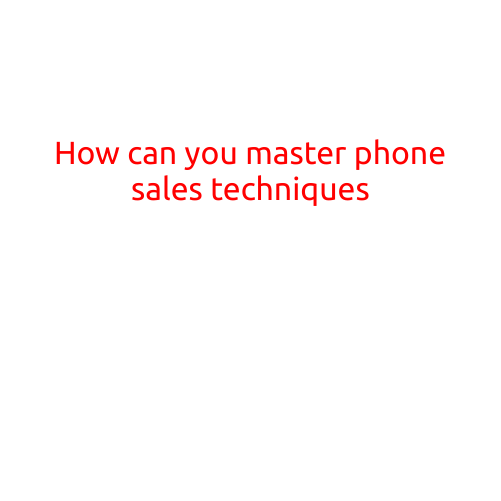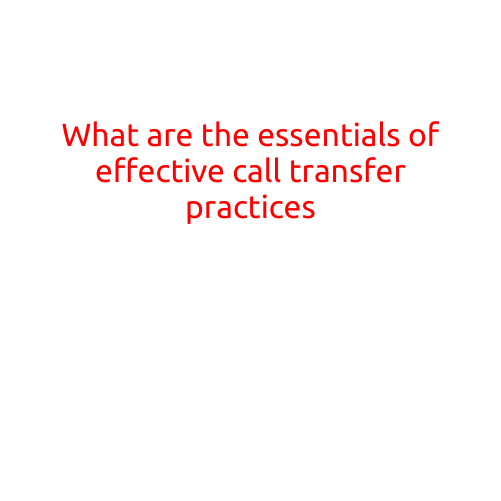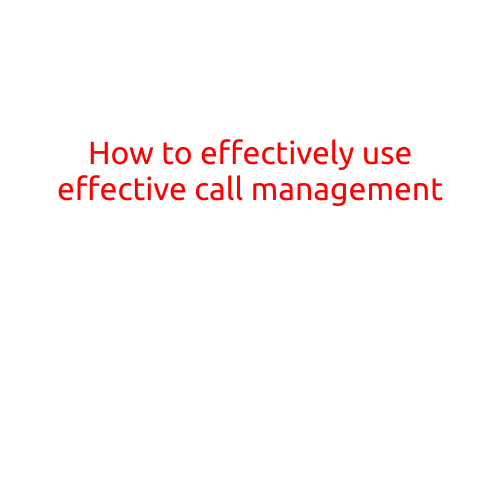
How to Master Phone Sales Techniques
Phone sales have become an essential part of many businesses, providing a direct line of communication with potential customers and allowing sales representatives to build relationships and close deals. However, with the rise of online communication, phone sales can be ever more challenging. To stay ahead of the competition, sales representatives need to master the art of phone sales techniques. In this article, we will explore some of the most effective ways to master phone sales techniques.
Understand Your Product or Service
Before making a single call, it’s essential to have a thorough understanding of the product or service you are selling. Knowing the features, benefits, and unique selling points will enable you to communicate more effectively with potential customers and answer any questions they may have. Take some time to review the product literature, watch training videos, and practice your pitch.
Prepare a Script (But Don’t Overdo It)
Having a script can help you stay organized and ensure you cover all the necessary points. However, a script that sounds too rehearsed or artificial can harm your chances of closing a sale. Instead, use your script as a guide and focus on natural conversation flow. Practice your script several times until it becomes second nature, and be prepared to deviate from it if the conversation takes an unexpected turn.
Start with a Strong Introduction
Your introduction sets the tone for the rest of the call, so make sure it’s strong and engaging. Start with a friendly greeting, introduce yourself, and clearly state the purpose of your call. This will help your potential customer know what to expect and set their expectations accordingly. For example:
“Hello, my name is [Your Name] and I’m calling from [Company Name]. I’m reaching out today to talk to you about our [Product/Service] and see if it’s a good fit for your business.”
Ask Open-Ended Questions
Asking open-ended questions is an effective way to gather information about your potential customer’s needs and build rapport. Avoid asking yes or no questions, as these don’t provide valuable insights into their needs. Instead, ask questions that encourage the customer to share their thoughts and experiences. For example:
“What are your current challenges with [specific area of their business]?”
“How do you currently handle [specific task or process]?”
Use Active Listening
Active listening is crucial in phone sales. Pay attention to what your potential customer is saying, both verbally and non-verbally. Repeat back what you’ve heard to ensure understanding and show that you’re engaged in the conversation. This will also help you identify potential pain points and tailor your pitch accordingly. For example:
“Just to make sure I understand, you’re looking for a solution to improve your [specific area of their business], correct?”
Handle Objections
Objections are a natural part of the sales process, and it’s essential to be prepared to handle them effectively. Anticipate common objections and have a plan in place for addressing them. For example, if a customer is concerned about the price, you could respond by highlighting the value proposition and offering a trial or pilot program. Practice your responses to objections until they feel natural and confident.
Close the Call with a Clear Next Step
After discussing the benefits and features of your product or service, it’s time to close the call with a clear next step. This could be scheduling a follow-up call, sending additional information, or taking the order. Make sure to summarize the key points discussed during the call and reiterate the value of your product or service.
Follow Up
Finally, always follow up with a thank-you email or phone call after the sale to ensure the customer is satisfied and to gather feedback. This will help you build a positive relationship and encourage customer loyalty.
By mastering these phone sales techniques, you’ll be well on your way to closing more deals and building a successful sales career. Remember to stay focused, practice your pitch, and always be prepared to address any objections or concerns. Happy selling!





